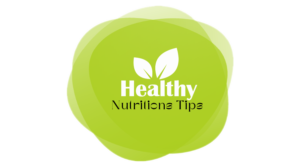Preventive healthcare is a proactive approach to staying healthy and avoiding illness. It’s about taking steps to prevent health problems before they occur, rather than simply treating them after they’ve developed. To help you on your journey to better health, here’s your guide to preventive healthcare and some valuable wellness tips.
- Regular Check-ups:One of the cornerstones of preventive healthcare is scheduling regular check-ups with your healthcare provider. These visits allow your provider to monitor your overall health, identify risk factors, and catch potential issues early.
- Healthy Diet:Nutrition plays a significant role in preventive healthcare. A balanced diet rich in fruits, vegetables, whole grains, and lean proteins provides essential nutrients that support your body’s functions and immune system.
- Exercise: Physical activity is vital for maintaining a healthy weight, strengthening your cardiovascular system, and reducing the risk of chronic diseases. Aim for at least 150 minutes of moderate-intensity exercise per week.
- Vaccinations:Keeping up-to-date with vaccinations is crucial for preventing infectious diseases. Vaccines have played a pivotal role in reducing the spread of many illnesses.
- Stress Management: Chronic stress can have a detrimental impact on your health. Find healthy ways to manage stress, such as meditation, yoga, or spending time in nature.

- Sleep: Quality sleep is essential for overall well-being. Aim for 7-9 hours of restful sleep each night to allow your body to recharge and repair.
- Avoid Smoking and Excessive Alcohol: Smoking and excessive alcohol consumption are associated with numerous health risks. Quitting smoking and moderating alcohol intake can significantly improve your health.
- Regular Screenings:Depending on your age and risk factors, your healthcare provider may recommend screenings such as mammograms, colonoscopies, and cholesterol checks. These screenings can detect conditions like cancer and heart disease at an early, more treatable stage.

- Hydration: Staying properly hydrated is essential for all bodily functions. Aim to drink enough water throughout the day to keep your body functioning optimally.
- Mental Health: Don’t forget about your mental well-being. Seeking support and counseling when needed is an essential part of preventive healthcare.
In conclusion, preventive healthcare is a proactive approach to maintaining your health and well-being. By incorporating these wellness tips into your daily life and working closely with your healthcare provider, you can reduce the risk of illness and enjoy a healthier, more fulfilling life. Remember, prevention is the key to a long and healthy life.

